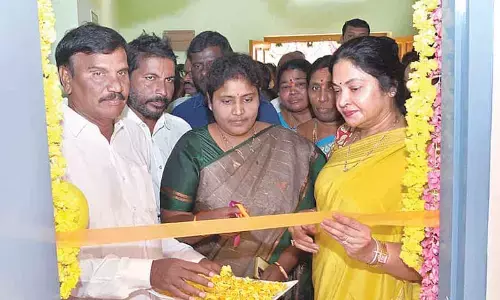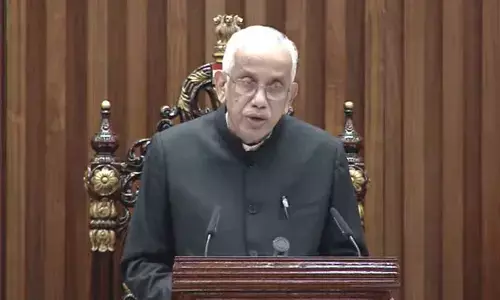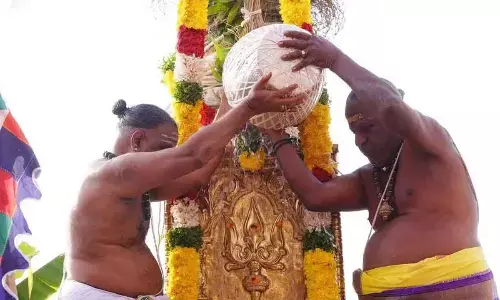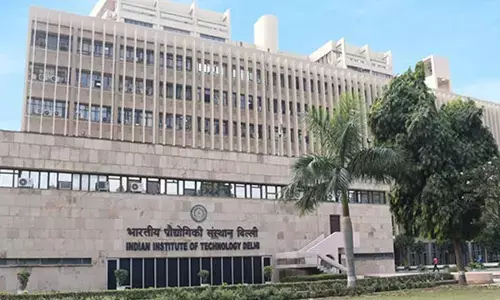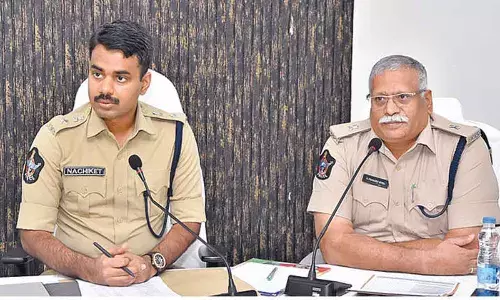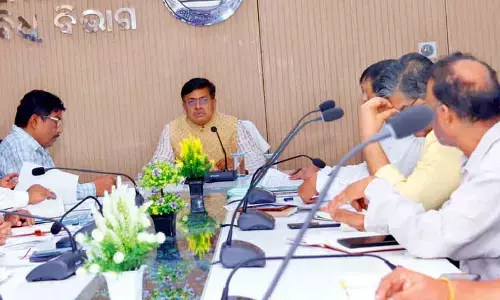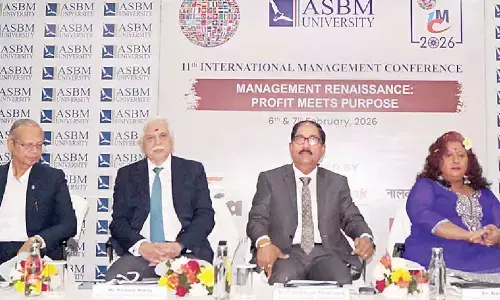Spare not a contemnor, even if he is a retired judge
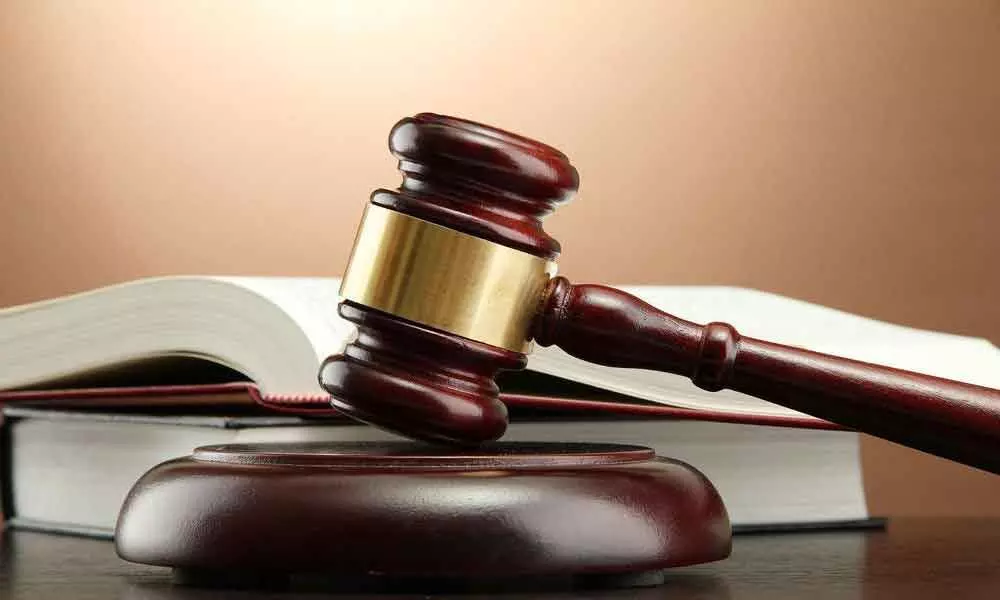
The judges are judged not only from their judgments but also from their behaviour, interaction with the fellow judges, lawyers, and other legal fraternity
The judges are judged not only from their judgments but also from their behaviour, interaction with the fellow judges, lawyers, and other legal fraternity. The society expects them to be like Caesar's wife who must always be above suspicion.
Any erratic behaviour of a judge not only would discredit him alone but also bring disrepute to the entire judiciary. The history is replete with examples. However, an efficient and reliable judiciary always takes care to create a built-in, self-correcting mechanism to rectify such sordid aberrations.
Seen in this context, the recent outbursts of Justice P Swaroop Reddy, former judge of Telangana High Court comments against sitting judge, Justice M S Ramchandra Rao are highly objectionable, unwarranted and unbecoming of a person of his stature.
Justice Rao on the other hand, had done what he ought to have done like a dignified member of the judiciary by recusing himself from the case in question and transferring the same to the Chief Justice.
In turn, though the High Court pulled up Justice Swaroop Reddy for levelling false and motivated allegations against a sitting judge of the High Court, it had shown mercy on the disrespectful former judge and refrained from initiating contempt proceedings. In fact, this is not a correct approach to the issue.
It was fairly expected of the High Court that it would adopt a tough stand against Justice Reddy for his unwarranted comments calculated to malign the sitting judge by assaulting deliberately upon his honesty and integrity.
The no-hold-barred war was declared by Justice Swaroop Reddy who is the chairman of the Telangana Admission and Fee Regulatory Committee (TAFRC) against Justice M S Ramchandra Rao who along with Justice K Lakshman was to hear the petitions on the fee hike for medical courses.
Justice Swaroop Reddy, strangely filed a Memo instead of a regular petition seeking recusal of Justice Rao on the unsubstantiated, imaginary and highly defamatory grounds.
Letting go the delinquent former judge by the High Court, even after concluding that the retired judge had made "false and motivated allegations" against a sitting judge sends out a wrong message especially, to the legal fraternity and the world at large.
By adopting tough posture, the High Court would have served itself well as the message would have gone loud and clear that in the scheme of our jurisprudence, the rule of law shall prevail and nobody will be spared if he or she attempted to denigrate the judiciary, howsoever high he or she may be.
In fact, the judicial propriety demands that higher the stature of an offender, higher should be the scale of punishment. Fortunately, some Bar Associations have taken the matter very seriously and it is likely to turn into a cyclone of discussion in the corridors of judiciary and the government the effect of which will be felt quite for some time to come.
BCI decries selectiveness in hearings
The regulatory statutory body of lawyers under the Advocates Act, the Bar Council of India (BCI), has decried the tendency by some selected law firms and lawyers having high level connections to take undue advantage of the lockdown situation.
In a resolution adopted recently, the BCI has said "public and advocates are in the dark as to what is really going on in the various courts of the country... litigants are unable to get justice through the process of virtual courts...due to unsatisfactory Wi-Fi and other technical problems...we cannot expect an effective hearing in this process."
Therefore, the BCI has decided to consult State Bar Councils and Bar Associations right from the Supreme Court to the district court levels to find out their opinion on the functioning of courts and how to streamline it. The BCI then will submit its report based on the response received by it to the Chief Justice of India within a week.
In another development, the BCI took pot-shots at the advocates indulging in advertising through social media. It also named and shamed particularly two advocates. Advertising in any form being in violation of the conduct rules, the BCI is likely to come down heavily on the erring advocates, Advocates' firms and owners and providers of the websites who make available cyber space for advertising, in a near future.
Though some may find reasons for differing but the provision banning advertisements by Advocates cannot be faulted either on legal or moral grounds. In fact, in the rapidly changing times, much more needs to be done to restore the past glory of legal profession.
The BCI also resolved to 'again' request the Prime Minister and Chief Ministers to assist the needy lawyers and help them overcome their professional loss as they have suffered and are still suffering.
"If the lockdown is going to continue after May 31 and functioning of the courts are not resumed even then, then the Union and State governments should suo motu come forward and extend substantial and financial assistance to all the needy advocates, their clerks and their families. In a welfare State, it is the duty of the State to do so", the resolution added.
Delhi HC on force majeure clause
In a significant judgment relevant to present days, the Delhi High Court has held that the doctrine of Frustration under section 56 of Indian Contract Act is not applicable to lease agreements.
Delivering a judgment in Ramanand v. Dr Gireesh Soni, the court held that section 56 is applicable only to "executory contracts and not to executed contracts." A contract for lease under which the lessee obtains possession from the lessor is an executed contract though it involves monthly payment of rent.
The bench of Justice Pratibha M Singh citing a catena of judgments observed that section 56 cannot be invoked to claim waiver, suspension, or exemption from payment of rent. However, in case the contract itself contained an expressed or implied term relating to a force majeure condition, the same shall be governed by section 32 of the Contract Act, the Court added.
The order came in an application filed seeking suspension of rent citing the Covid-19 lockdown.
The court observed, "The force majeure clause in the contract could also be a contingency under section 32 which may allow the tenant to claim that the contract has become void and surrender the premises.
However, if the tenant wishes to retain the premises and there is no clause giving any respite to the tenant, the rent or the monthly charges would be payable."
Use of drone for surveillance prohibited
The apex court of France Consel d'Etat has recently ordered the police not to carry out surveillance measures by drone to track people flouting lockdown restrictions. The drones were designed to observe the people who violate the restrictions during the period of lockdown in France.
The apex court had passed the order after the Human Rights Organisations 'La Quadrature du Net' and Human Rights League challenged that the use of the device by the police aimed at capturing images by drones to enforce the containment measures in relation to Covid-19 pandemic, is violative of individual privacy.
The court further observed that the drones "are likely to collect identifying data and they do not contain any technical device likely to prevent, in all cases, that the information collected may lead, for the benefit or use other than that currently practiced." It added that this leads to a serious and manifestly illegal attack on the right to respect for private life.


